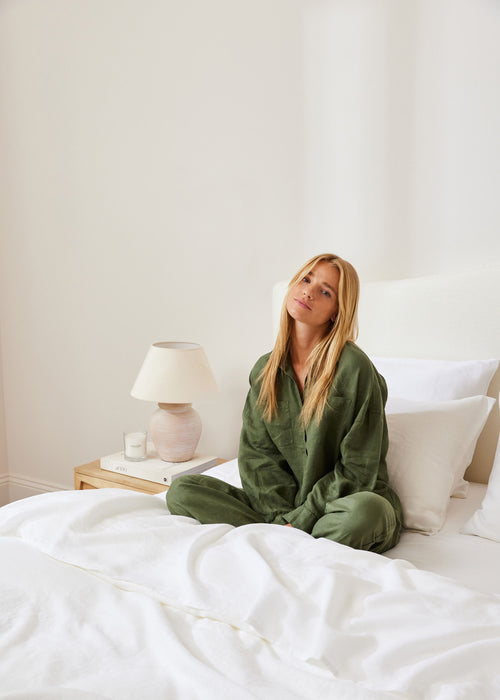
"How I Cured My Debilitating Sleep Paralysis"
Sleep paralysis is an unpleasant experience, but you can minimise the chances of it happening.
If you’ve never experienced sleep paralysis, I envy you. I was around nine years old the first time it happened to me. I was always an anxious kid, but the cold dread that shot through my body while I lay pinned to my bed, convinced a murderer was inching closer to the foot of my bed, was unlike anything I’d ever felt. I’m now 30, and I still experience episodes of sleep paralysis much more regularly than I’d like.
For the uninitiated, sleep paralysis is the temporary inability to move or speak, usually experienced while falling asleep or waking. Many people, myself included, also experience nightmarish hallucinations during these episodes (really fun stuff, I know).
After my most recent sleep paralysis experience, I had to lay awake with my lamp on for the next hour just to calm my nervous system down, so frightening were the visual and auditory hallucinations.
In need of some advice, I reached out to Dr Moira Junge, a registered health psychologist and CEO of the Sleep Health Foundation.
Why does sleep paralysis happen?
Dr Junge tells me the exact cause of sleep paralysis is unknown. “There can be many reasons, for example, it can be a part of the symptoms experienced within a sleep disorder known as narcolepsy, or other sleep disorders where sleep is simply not adequate and restoring. There are many mixed results with research that’s been done into sleep paralysis. The most common reason that people agree on is that sleep deprivation, or poor quality disrupted sleep, is a common cause.” In my situation, this very much checks out – I’ve always had trouble falling asleep, and have experienced periods of insomnia throughout childhood and adulthood.
What can I do to limit the chances of future episodes?
Dr Junge tells me the best thing you can do to minimise the possibility of sleep paralysis is to keep your life as balanced as possible – easier said than done, I know. She also flags reducing stress and feelings of overwhelm, staying fit, eating healthy, clean food, and getting adequate amounts of daylight as helpful. Most importantly, she tells me getting good amounts of regular and consistent sleep is paramount.
“Try to avoid as much as possible getting into a sleep-deprived state. Have a very soothing pre-bed routine and yes get plenty of sleep as a priority area of your health plan! If people are concerned and despite their best efforts don’t feel as though they can get regular good sleep then seek specialist advice from a sleep disorders physician.”
For more from Cait, follow her @caitemmaburke
This article is intended for informational purposes only and is not a substitute for individualised health advice. If you are concerned about your health and wellbeing, please speak to your GP, who will advise on the correct treatment plan. You can also call Lifeline 24/7 for mental health support on 13 11 14.
Create a Soothing Sleep Space
Enjoyed This?
Discover more articles on sleep.













